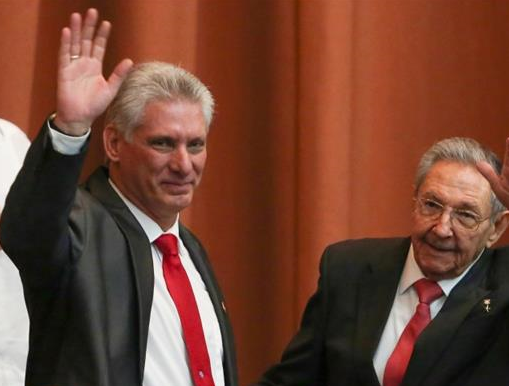 Miguel Díaz-Canel and Raúl Castro.
Miguel Díaz-Canel and Raúl Castro.
Notes on social science and the hegemonic discourse
Cuban President Miguez Díaz-Canel has brought together persons from the technical and scientific sectors to diagnose and offer solutions to numerous problems and challenges facing the Cuban Revolution. They are problems, which many claim have existed over decades, that have demonstrated the insufficiency of our institutional mechanisms to apply scientific knowledge and good practices to our many social spheres. Proof of this has been the integration of institutions and professionals under a new management scheme to successfully face the COVID-19 pandemic — a corresponding political priority.
This can also be found, at an even greater disadvantage, in the social sciences that are hard to find in social processes regardless of how optimistic or pessimistic they view the development reached on the Island. Such is the case with the political sciences, which have little influence on government agendas and decision-making. And all of the above contrast with what Marxism assumes should be a socialist transition that encompasses a conscious conduction of social processes based on knowledge and social technique.
However, the relative development achieved by the Cuban social and humanistic sciences has been sufficient to understand and interpret the evolution of Cuban society in the last seven decades, as well as to characterize many of the changes that have occurred in it. In fact, after the processes of simplification of the social structure that occurred as a result of the transformations implemented by the new revolutionary power in the early sixties, Cuban society began its evolution towards a socialist society characterized by greater complexity of its social structures — demographic, generational, socio-class, occupational, income, status, etc. — as demonstrated by the current Cuban society, which is more differentiated and diverse than all previous ones.
Without this knowledge and estimation of their conditioning, social leadership will become subjective and imagine something far from reality and based on poorly founded opinions and exposed to the prejudices of the actors. This lag will particularly affect the hegemonic discourse with which the organic intellectuals that Gramsci said — the politicians, other officials, the military, scientists and technicians, artists and writers, ordinary people and others — have ensured the consent of the population to the regime that emerged from revolutionary power and its projects of nation and society. But obviously, this discourse cannot tend towards simplification in the face of a society that becomes more complex; and at the same time, it would have to be able to dialogue with the multiplicity of actors, ideas and proposals that contribute or would contribute to said hegemony.
For more than a decade, in his many speeches, Raúl Castro called for a change of mentality, the overcoming of political stereotypes, and the opening up to dialogue, debate and public consultation. My compilation of these guidelines, in what I called “The Raúl Code,” showed me both its critical and self-critical depth, as well as its limited resonance among leaders and officials, as well as the overlapping bureaucratic resistance to the required transformations.
It is worth noting that political behavior that distances itself, or hinders such changes in the mentality, organization and functioning of our society, will erode the hegemonic discourse of the Revolution and will give more space to other counter-hegemonic discourses.


